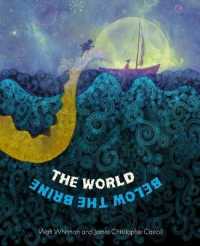Full Description
From stories of biblical patriarchs and matriarchs and their children, through the Gospel's Holy Family of Jesus, Mary, and Joseph, and to modern Jewish families in fiction, film, and everyday life, the family has been considered key to transmitting Jewish identity. Current discussions about the Jewish family's supposed traditional character and its alleged contemporary crisis tend to assume that the dynamics of Jewish family life have remained constant from the days of Abraham and Sarah to those of Tevye and Golde in Fiddler on the Roof and on to Philip Roth's Portnoy's Complaint.
Jonathan Boyarin explores a wide range of scholarship in Jewish studies to argue instead that Jewish family forms and ideologies have varied greatly throughout the times and places where Jewish families have found themselves. He considers a range of family configurations from biblical times to the twenty-first century, including strictly Orthodox communities and new forms of family, including same-sex parents. The book shows the vast canvas of history and culture as well as the social pressures and strategies that have helped shape Jewish families, and suggests productive ways to think about possible futures for Jewish family forms.
Contents
Foreword
Preface: Doing the Jewish Family
Introduction
1. Terms of Debate Family History and the History of Families
Bearing the Children of Israel
Narrating the Family Journey
Husbands, Wives, and Rabbis in Antiquity
In the Ancient Neighborhood
"Jewish Gender"?
Beyond "Tradition" and "Modernity"
An All-Too-Quick Trip to Israel
2. State of the Question The Medieval Jewish Past Today
Mediterranean Wolrds
Dreamtimes and Lifetimes
Leaving Ashkenaz
Back to Europe?
From Ethnic Dissolution to Ashkenaz Regained
Jewish Genes 3. In a New Key Off-Key Echoes of Old Prejudice
The Return of "Race"?
Families Undone and Redone
Suturing the Tears in Family Memory
Cut to Identity
Possible Futures
Keeping Up with the Goldbergs
Who Needs the Jewish Family?
Notes Bibliography
Index








